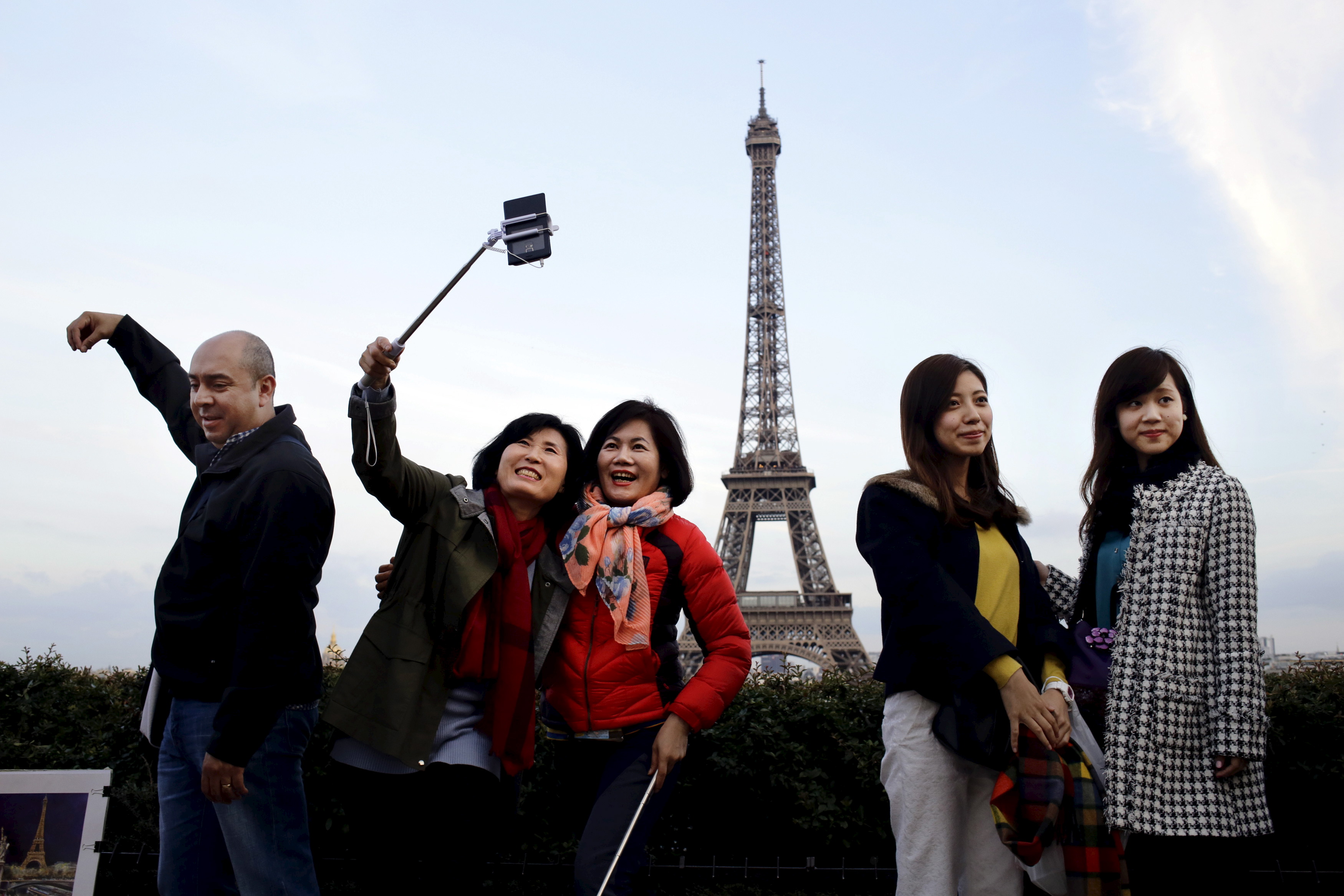6 essential travel phrases you should master before any trip
You really don't want to mime, "where is the bathroom?"


A free daily email with the biggest news stories of the day – and the best features from TheWeek.com
You are now subscribed
Your newsletter sign-up was successful
Six months into a nine-month trip around the globe, I found myself on a train crossing the French-German border and discovered, to my horror, that the train announcements had just switched from French to German. As I listened, awaiting the surely inevitable French version to follow, the realization slowly dawned on me that the only German phrase in my arsenal was, "Auf Wiedersehen." And, as six months of travel in countries from Cambodia to India had taught me, knowing how to say "good-bye" would get me exactly nowhere.
While I've never been a fan of the tourist phrasebook — seriously, how effective do you think your painful attempt at sounding out "How is the duck cooked?" will be? — I have compiled a collection of key words and phrases that I try to learn in the local language of every place I'm going. While basic English phrases, hand gestures, and a good sense of humor will get you further than you might expect, things will be a lot easier with a few local words in your back pocket. I try to find someone who speaks the language to teach me how to say them before I go (pronunciation is key), but, in a pinch, ask your hotel concierge, Airbnb host, or even your neighbor on the plane. And then: practice!
Without further ado, here are the essential travel phrases you need to know:
The Week
Escape your echo chamber. Get the facts behind the news, plus analysis from multiple perspectives.

Sign up for The Week's Free Newsletters
From our morning news briefing to a weekly Good News Newsletter, get the best of The Week delivered directly to your inbox.
From our morning news briefing to a weekly Good News Newsletter, get the best of The Week delivered directly to your inbox.
1. Hello
This may be obvious, but it's important. Greeting someone in their own language makes a good first impression and shows that you're interested in their culture. Greeting them in English is just gauche, especially because it is so easy to learn the local way — not least because you'll hear it around you all the time. If you want to give yourself some extra homework, find out if there are complete phrases and different responses to greetings; for example, in Arabic, the first person says, "as-salaam aleikum" in greeting, and the second responds, "wa-aleikum salaam."
2. Please/thank you
Again, straightforward, but not to be missed. Many cultures are more linguistically formal than English, and you can accidentally offend someone by omitting the equivalent of "please" from a question or even a restaurant order. Similarly, neglecting to thank someone can be quite the faux pas. Note that, in many languages, "please" is a phrase rather than a word.
A free daily email with the biggest news stories of the day – and the best features from TheWeek.com
3. Yes/no
These two are overlooked surprisingly often, in large part because the sentiments can usually be conveyed by facial expressions and hand gestures. But I find them especially useful in continuing the illusion in basic interactions that I do, in fact, speak the local language. Also, if you're a woman traveling alone, being able to say "no" very loudly can be quite important.
4. I don't speak [insert language here].
You've successfully exchanged greetings with someone, and your pronunciation was up to snuff, but now they've just rattled off a few lines and are looking at you expectantly — and you have no idea what they said, much less how to respond. I know how to tell people I don't speak their language in nearly 10 languages, and I can even say it in a passable accent in each; in fact, a German shopkeeper once refused to believe me. Normally, however, it inspires my interlocutor to find someone who can translate for us. Which brings me to…
5. English (and any other language you speak)
Contrary to popular belief, it's likely not immediately obvious that you're an English speaker. So, after you've just told someone that you don't speak their language, you should promptly tell them what language you do speak — in their language, of course. Most people tend to essentially ask, "English?" as a hopeful question to which the local will respond, "Yes," but be prepared to be let down. I also have "French?" and I've been fortunate enough to have traveled with friends who also have "Russian?" and "Spanish?" The more languages you have at your disposal, the more likely you and your new friend are to find one you share.
6. Where is the bathroom?
As far as I'm concerned, this is the single most important phrase that you as a traveler need at your disposal. Even if you just know the local word for bathroom (or restroom, or toilet, or W.C., etc.) and can intone it as a question, you'll be okay. But, seriously, no one wants to have to mime having to use a toilet to find the nearest one.
There are, of course, plenty of other useful phrases you could learn, depending upon where you're going and your reason for travel. For example, if you have any food allergies, I highly recommend learning how to say those foods in the local language. (Pairing those with a pantomime of choking and dying should be highly effective.) If you're feeling especially confident, taking a basic conversational language class before you go will significantly broaden your experience.
But these phrases should, at the very least, give you a solid foundation.
Kate Thorman is a freelance writer and editor based in Brooklyn. Her work has appeared in such publications as AFAR, Bon Appétit, and Fodor's. Her other projects include screenwriting and Part Time Vegan.
-
 El Paso airspace closure tied to FAA-Pentagon standoff
El Paso airspace closure tied to FAA-Pentagon standoffSpeed Read The closure in the Texas border city stemmed from disagreements between the Federal Aviation Administration and Pentagon officials over drone-related tests
-
 Political cartoons for February 12
Political cartoons for February 12Cartoons Thursday's political cartoons include a Pam Bondi performance, Ghislaine Maxwell on tour, and ICE detention facilities
-
 Arcadia: Tom Stoppard’s ‘masterpiece’ makes a ‘triumphant’ return
Arcadia: Tom Stoppard’s ‘masterpiece’ makes a ‘triumphant’ returnThe Week Recommends Carrie Cracknell’s revival at the Old Vic ‘grips like a thriller’